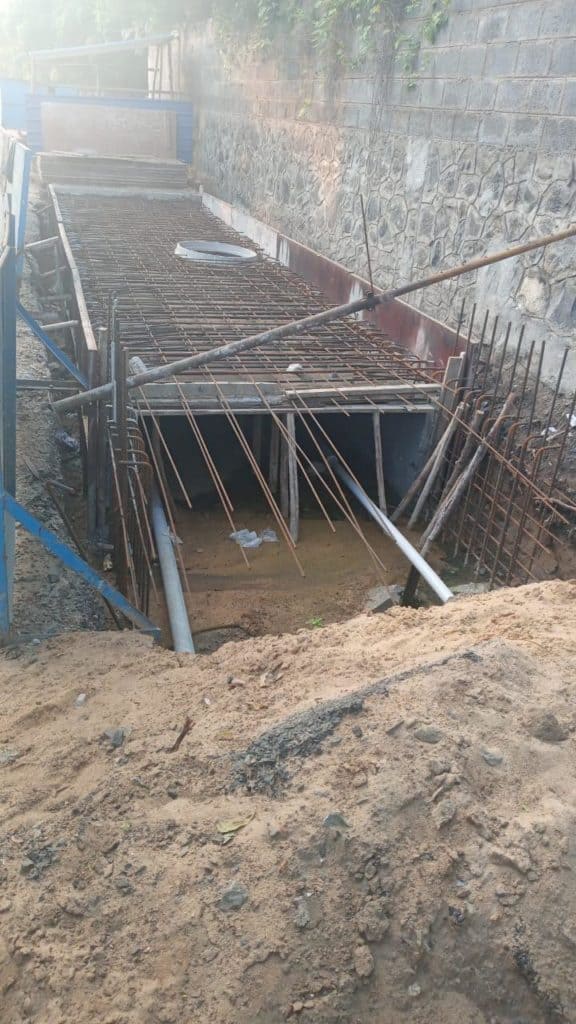Corporation adopts a multipronged strategy to combat COVID
With the possibility of a third wave of COVID-19 being predicted, the Greater Chennai Corporation plans to scale up the number of ICU beds and keep them ready at community health centres across the city. This move comes after a series of meetings held with experts and epidemiologists.
The corporation plans to increase the number of available ICU beds in phases. In the first phase, a minimum of 15 hospitals attached to the civic body will get ICU beds. The expert team also suggested the genomic surveillance of COVID-19 samples for containing the pandemic. The inferences from genomic surveillance and serosurveys could be used to determine interventional strategies in hotspots.
The civic body is adopting a multi-pronged strategy by forming three special squads (called zonal enforcement teams) with representatives from the corporation and police departments. They will be deputed across all 15 zones. These teams will be in-charge of checking lockdown violation, compliance to SOPs by commercial establishments and creating awareness about COVID protocols.
Source: The Hindu
World Bank approves funds for third Master Plan
The World Bank has approved funds amounting to USD 9 million to the Chennai Metropolitan Development Authority (CMDA) for the third master plan project. The agency has resumed work on the third master plan, expansion of Chennai Metropolitan Area (CMA), and improving road link between Old Mahabalipuram Road (OMR) and East Coast Road (ECR).
The master plan is also a part of the Tamil Nadu Housing and Habitat Development Project (TNHHDP), a World-Bank-funded initiative of the State government. The upcoming master plan is anticipated to provide a long-term perspective for urban development of the CMA.
The bank will also provide technical assistance that includes a climate and disaster resilience study and geo-spatial mapping to feed into the master plan preparation.
There has been opposition to the CMA expansion which was provisionally notified in 2018 as there are concerns of harm to the agricultural pastures, water bodies and other resources.
Source: The New Indian Express
Next pedestrian plaza at Khader Nawaz Khan Road
Under the Singara Chennai 2.0 initiative, the city corporation plans to have the next pedestrian plaza at Khader Nawaz Khan Road in Nungambakkam. The project is estimated to cost Rs 18 crore and will have exclusive space for food joints and for art and culture in addition to a space for recreation.
While the designs have been approved, the corporation has not finalised the project as it was initiated during the tenure of the previous government. Corporation officials hint that there could be changes as the plans are being reviewed.
Source: The Times of India
Read more: Mega Streets project: Here’s how it can change your neighbourhood
Corporation issues notice to contractor
With the city bouncing back to normalcy and shifting its focus towards infrastructural projects, the Greater Chennai Corporation Commissioner Gagandeep Singh Bedi has issued a show-cause notice to contractors for the delay in initiating the Integrated Storm Water Drain (ISWD) project for Kosasthalaiyar basin in North Chennai.
The project is being funded by the Asian Development Bank and the ISWD network runs for 763 kilometers covering flood-prone localities like Thiruvottiyur, Manali and Madhavaram. The ISWD project proposed for the ECR stretch awaits orders from the National Green Tribunal (NGT). The corporation plans to review stormwater drains every fortnight.
Source: The New Indian Express
Tasmac reopening burdens hospitals
As lockdown norms were relaxed last week, the state government gave a nod to reopening Tamil Nadu State Marketing Corporation (Tasmac) liquor outlets to operate between 10 am and 5 pm.
This has led to burdening the government hospitals in the city as they recorded an uptick in the number of cases reported at the trauma ward with the majority of them admitted in an intoxicated state. Usually, Stanley Hospital operates on 30 cases at the Tamil Nadu Accident and Emergency Care (TAEI) ward. However, a day after the TASMAC outlets were opened, the trauma ward had more than 200 cases to be operated on and 70% of the patients were in an inebriated state.
Data from the Greater Chennai Traffic Police (GCTP) also note that drunk driving deaths went up by double the number in the past week. In light of this, the cops have stepped up vehicle checks.
Source: The Times of India
Also Read
- Preventing child sexual abuse in schools: What teachers and parents must know | Citizen Matters, Chennai
- Child Sexual Abuse: Laws and helplines to note | Citizen Matters, Chennai
Compiled by Bhavani Prabhakar

In spite of considered public opinion against opening of Tasmac, it was opened to gain popularity among the BPL and bring in funds to exchequer. What is the logic of keeping restaurants closed for dining in? It was clear that opening of Tasmac will lead to spread of Covid. It does not need any expertise to know this.
The only way to reduce the morbid fascination one has about alcohol is to make it easily available. In countries like Singapore and Mauritius where alcohol is freely available in supermarkets and small stores drunken driving or public disturbances due to drunkeness is negligible.
Familiarity breeds contempt. Open Tasmac shops 24 / 7 and you will see a decrease in crowds thronging to them and a gradual decrease in consumption. Just think …if it rains gold will its value go up or down?
The State Government could have postponed the reopening of TASMAC Shops taking up nto consideration of Ytrauma patients as it was only 30cases but àfter reopening of Tasmac it hasn been 30 patients per day due to drunken driving